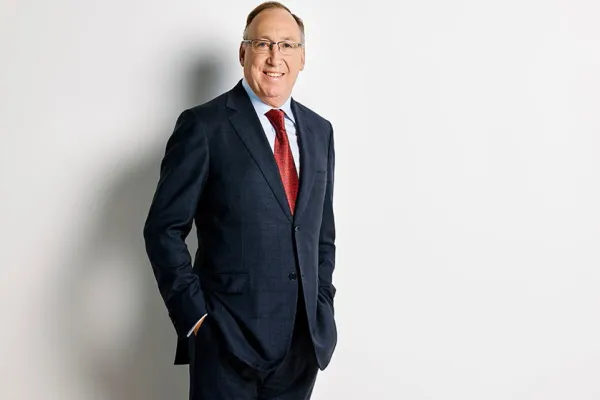Recessions can be a mixed bag for entertainment conglomerates. On the plus side, cash-strapped consumers often favor “staycations” over exotic trips — and thus are more likely to go to the movies or watch TV. But recessionary downsides abound too: Those same consumers usually ride herd on discretionary spending, which means they buy fewer DVDs and video games. And woe to the companies overly reliant on advertisers.
Philippe Dauman, CEO of New York–based entertainment giant Viacom, isn’t mincing words about the impact of the current downturn. “Overall the recession’s been a drag,” says Dauman, a Viacom veteran who left in 1999 to start his own private equity firm but returned as chief executive in 2006.
To be sure, plenty can go wrong in a sprawling media empire. Despite being blockbusters, movies like Star Trek and Transformers: Revenge of the Fallen have not turned Viacom’s Paramount Pictures into an earnings star. And brisk product sales related to the tenth anniversary of Viacom’s beloved SpongeBob SquarePants’ first hitting the airwaves couldn’t make up for sluggish TV advertising. In the second quarter, revenue was an anemic $3.3 billion, down 14 percent from the same period a year earlier, and the company earned just $277 million, or 46 cents a share — a penny more than analysts had predicted (excluding severance charges), but still 32 percent below second-quarter 2008 earnings.
Dauman readily concedes that Viacom had problems long before the recession hit. Costs had skyrocketed at Paramount, which last year severed its ties with DreamWorks, the studio co-founded by Steven Spielberg, Jeffrey Katzenberg and David Geffen, who had sold it to Viacom in 2005. In the gaming space, MTV Games’ Rock Band played second fiddle to Activision Blizzard’s Guitar Hero. And once-groundbreaking cable outlets like MTV and BET were losing viewers.
In late August, Viacom’s nonvoting class B shares were trading at $24, down about 17 percent from a year ago. The stock had consistently traded at lower multiples than those of its peers — until the tanking economy leveled the field, dragging down the shares of rivals.
Dauman, 54, is tackling these problems head-on. The CEO has cut costs across the board. He’s brought in new management at MTV and BET; both have introduced fresh programming that is recapturing viewership. In a coup, Viacom’s games unit, also under new management, is set to release a version of Rock Band on September 9 that features the music of the Beatles. October will see the debut of Epix, a premium cable channel that Viacom is launching in partnership with film studios Metro-Goldwyn-Mayer and Lionsgate.
The company is starting to see changes. Viacom has been able to sign up new affiliates to carry its programs and even to raise fees. Advertising revenue has been inching up as well, and analysts are already talking about sequels to Viacom’s late-summer blockbuster GI Joe: The Rise of Cobra, which earned $100 million worldwide on its opening weekend. And analysts predict huge sales when the Transformers DVD goes on sale at year-end.
In a recent interview with Institutional Investor Contributing Writer Claudia Deutsch, Dauman laid out why he thinks Viacom is in fighting trim and ready to capitalize on an economic rebound.
Institutional Investor: This is your second go-round with Viacom. Why did you leave, and what lured you back?
Dauman: Viacom bought CBS in 1999, and part of that deal was that Mel Karmazin would run the company. So Tom Dooley [then Viacom’s chief administrative officer and now also the CFO] and I left to start a private equity firm specializing in media. But I stayed on the Viacom board, so it wasn’t as though I’d lost touch with the company. Sumner Redstone [Viacom’s 83-year-old founder and chairman] asked me to step in as CEO, and I said yes.
Redstone is certainly not known as a hands-off chief. Is he interfering a lot?
I’ve had a relationship with Sumner as a lawyer, as an adviser and as an executive that has lasted a good part of my life. It’s a relationship of mutual trust. I confer with him, certainly, but he trusts me to run the company. He’s got a lot of other issues to deal with these days.
Why are you launching Epix? Does the world really need another premium-price cable channel?
We’d been releasing movies on Showtime. Our agreement was expiring, and they wanted to negotiate much lower payment rates. MGM and Lionsgate also had contracts coming due, and they were getting the same message. It makes sense to cut out the middleman. As creators and distributors we can make all movies available in high definition, we can decide when they will run, we can make them viewable on computers as well as TV, we can create original series, we can even explore mobile applications. We have a chance to think fresh, to exploit the technologies that have unfolded since HBO created pay TV.
Don’t you worry that the Web will cannibalize TV and feature films?
Remember when people thought TV would cannibalize theater-going? Instead, TV is now an additional outlet for movies. If we show yesterday’s Daily Show on the Web, it’s good promotion for tonight’s show. People can catch up on series on the Web. We can even let people watch our shows on mobile devices. Online entertainment is just another inflection point, one that poses huge incremental opportunities.
In 2007 you sued Google and its YouTube subsidiary for copyright violations. Are you close to a ruling?
The Google lawsuit is in discovery, which can be quite lengthy. It’s wending its way, and we are confident of a good outcome.
From the looks of your cable station roster — BET, Comedy Central, Country Music TV, Logo, MTV, Nickelodeon, and that’s naming just a few — you seem to be going after every age group and every cultural leaning. Can you be all things to all people?
We don’t try to be. Each of our brands is carefully targeted. Logo is for the gay and transgender community; BET goes after African Americans; Nickelodeon goes after families. And those audiences have an emotional connection with the brand. With broadcast stations people tune in for a particular show. Our viewers will say, “I wonder what’s on Nickelodeon now?”
Overall we are skewing toward a younger demographic. Even TV Land, which probably has a median viewer age of 50, is aging down, with shows like High School Reunion.
If the stations, not to mention Viacom’s different units, are in their own little silos, how can they build on each other’s strengths and audiences?
We’re really working on that. We intend to make a lot of full-length Nickelodeon-brand movies. In fact, we already have director M. Night Shyamalan working on a movie based on Avatar, a popular Nickelodeon franchise. We are promoting more Paramount movies on the networks, and we are merchandising the most popular franchises. Items based on Dora the Explorer and SpongeBob are providing great revenue. And Paramount helps us find partners for joint ventures abroad. Colors, our two-year-old Hindi-language channel, was India’s second-highest-rated channel in the spring. It’s a joint venture with a local Indian company, and it became clear during our negotiations that our Hollywood connection was particularly attractive to them.
Why doesn’t your games division come up with games based on your most popular characters?
Games are very expensive to produce, and they can be hit or miss. We’re strongly associated with music because of MTV, so we decided to capitalize on that instead. I don’t think we could have ever gotten the Beatles or their estates to agree to Rock Band: Beatles if they didn’t feel we were a company that had music at its soul.
And our casual gaming business, those simple games you play on the computer, is growing and has huge potential for substantial advertising and subscription revenue.
Apart from layoffs, what has Viacom done to cut costs?
We’ve closed down expensive and unnecessary international headquarters operations in London and Miami.
On the TV side we’ve adopted programming efficiencies. We’ll order more episodes of a show so you don’t have to keep striking and rebuilding the sets. And we get cost synergies now too. Each show used to negotiate its own deals with production houses and other suppliers. Now they go as a team. If you’re producing nine shows across several networks, you are going to get a better deal.
And a lot of the DreamWorks people left on their own. That certainly reduced our overhead. But you be can sure we are still maintaining relations with Steven Spielberg!






